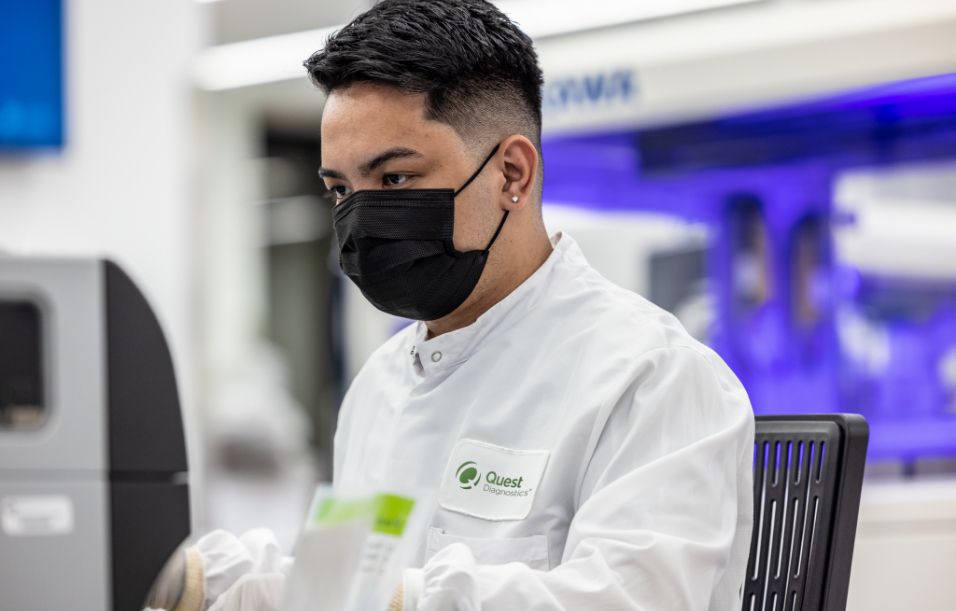Is COVID-19 testing still free for my patients?
- Private health insurance companies are no longer required to provide free tests1
- Traditional Medicare enrollees may still be eligible for testing with no cost-sharing1
- As of October 1, 2024, coverage for Medicaid enrollees may vary by state2
How can I help ensure testing will be covered by my patients’ insurance?
To help control patient out-of-pocket costs, here are some key tips to remember:
- Many health plans are including testing as a benefit, but members may be responsible for paying their co-pay or a deductible based on their benefit plan,c and testing must be performed by an in-network lab
- Quest is in-network with 90% of insured lives nationwide, which can help keep out-of-pocket costs low for your patientsb
- Healthcare provider must submit the test order and include appropriate ICD-10 codes
- Many plans are requiring patients to be symptomatic for testing to be coveredc
Will Quest still offer COVID-19 testing?
We are committed to supporting you and your patients with a complete portfolio of COVID-19 tests, including molecular laboratory tests and respiratory combination tests, which use a single specimen to test for COVID-19 and other respiratory pathogens.
How can my patients get tested?
Testing is no longer available at retail sites (ie, pharmacies). For sick patients who are in your office for testing, you can send the collected sample to Quest, or, you can consider sending an order to a Quest Patient Service Center for supervised self-collection.a
a Supervised self-collection is not available in the following states due to state regulations: AL, AZ, DE, HI, KY, LA, ME, MN, MS, MT, ND, OK, RI, UT, VT, WA, and WY. Supervised self-collection may be available only at select Patient Service Centers in all other states. Contact your Quest representative for a list of Patient Service Centers offering supervised self-collection in those states.
b This is directional data. It is based on 2020 HealthLeaders membership data of private third-party payers at the Managed Care Organization (MCO) level, as well as Quest internal data. Information is believed to be accurate as of January 1, 2020; however, it is subject to change. Does not include Kaiser Permanente access data.
c Coverage may vary within individual insurance plans.







